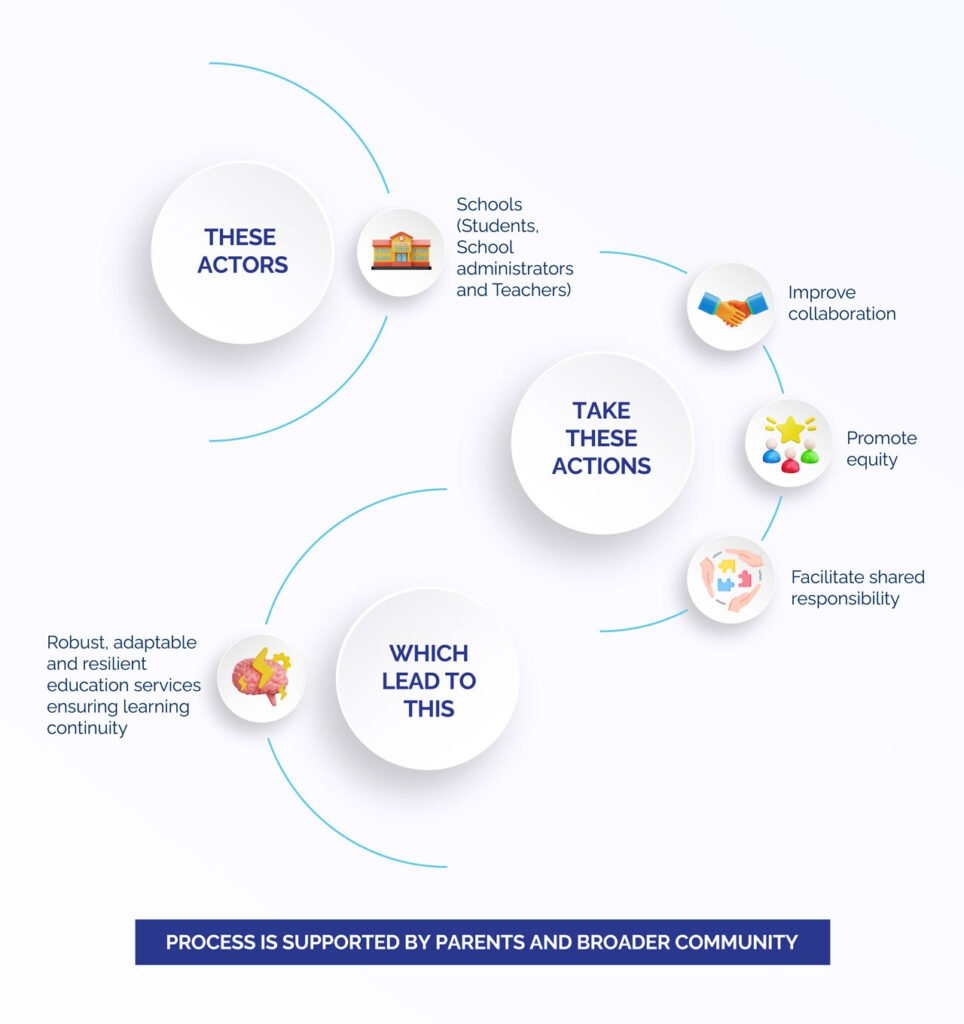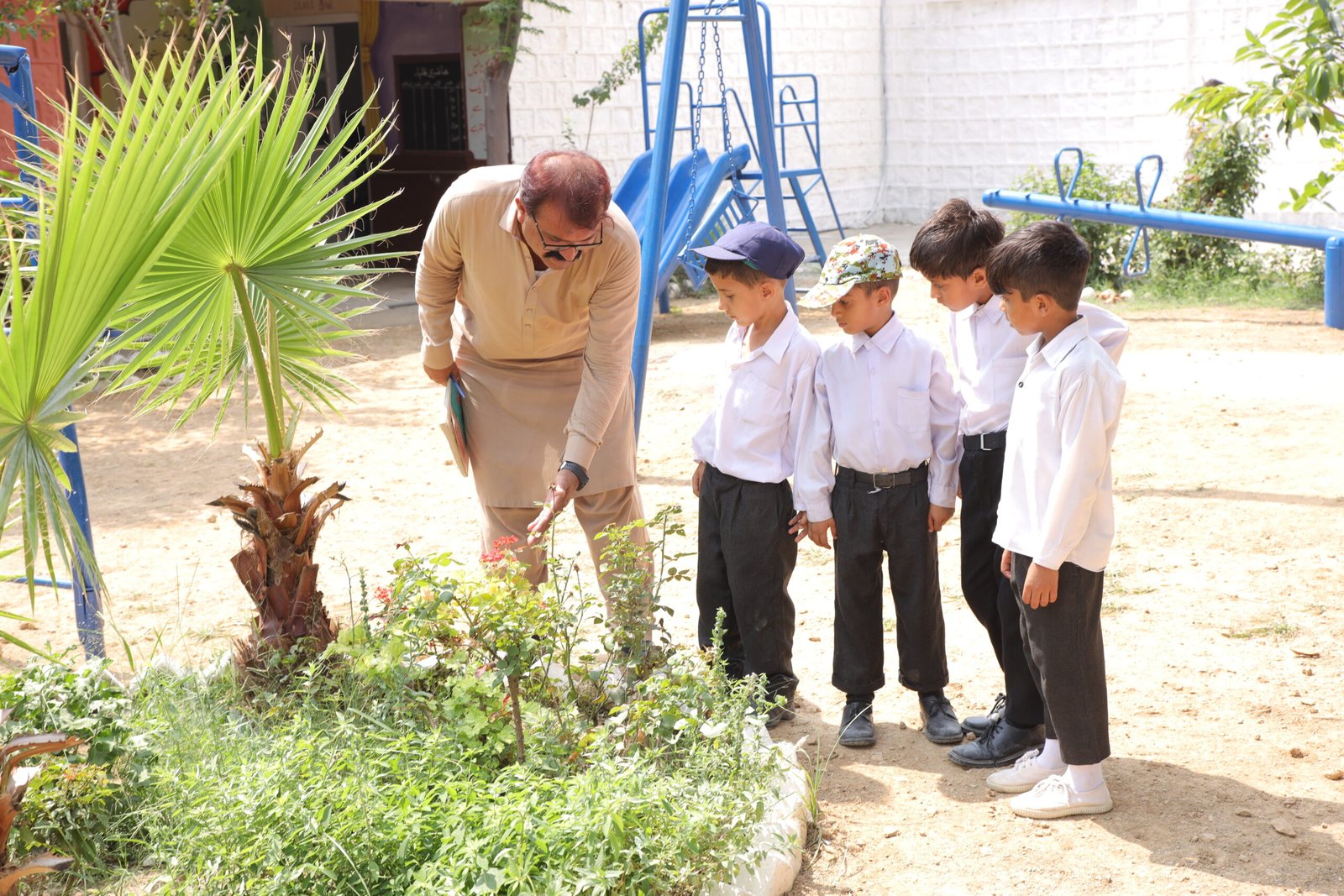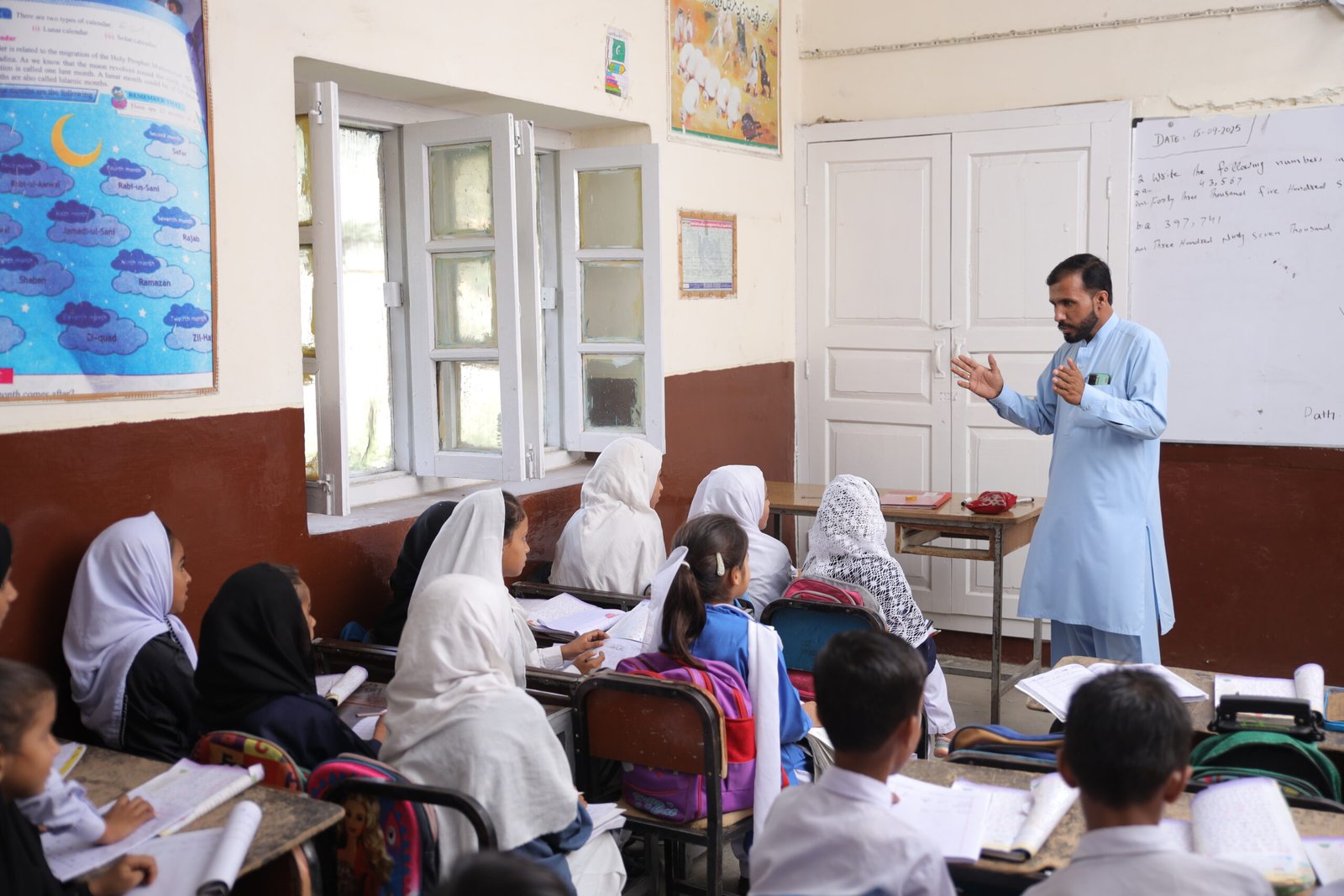Schools and communities are on the frontline of the climate crisis in Pakistan. Floods, drought and heat waves impact children’s learning, with schools closing when disaster strikes. The absence of support and encouragement from the government to identify and build on local strengths and experiences has emerged in a DARE-RC study in schools in Islamabad, Punjab and Sindh; highlighting the need to ensure this relevant experience and knowledge is not overlooked. This study focuses on generating contextually grounded evidence on what resilient education means for adolescents, their teachers, education authorities and communities in Pakistan.
Community-led insights
In an era marked by unprecedented global challenges, the impact of climate change on local communities and the resilience of education systems to cope has become an area of critical focus. Education is vital for enhancing our ability to mitigate and adapt to these changes. The climate crisis requires that we – as education researchers, practitioners, and decision-makers critically evaluate and improve policies to ensure resilient, inclusive education for all. Past solutions may no longer be effective, necessitating more ambitious and comprehensive approaches to adapt and mitigate the effects of climate change on education systems and communities.
To address the climate crisis within the shrinking window for action, we need to radically transform education systems to change mindsets and paradigms that go beyond broad, general principles and consider local contexts and lived experiences. Community-led insights are key to driving these changes and to shaping policy frameworks.
In recent years, the importance of community-led insights in shaping policy frameworks has gained significant recognition. Communities on the frontline of climate impacts have the most intimate understanding of their vulnerabilities, making them best suited to design and implement practical, sustainable, and inclusive solutions. Similarly, community-led climate and education actions lead to significant improvements in education quality and accountability. By placing citizens at the core of decision-making, policies are more reflective of the true needs and aspirations of the community.
Hence, we need schools and local communities to be the focal point for local adaptation to the climate crisis, with students and community members empowered to play significant roles in decisions that directly influence their lives. Building on people’s lived experiences and how they relate to climate change is crucial – not only for more effective policy development, but also for finding solutions that do not exacerbate existing inequalities.
Policies that fail to account for local contexts and vulnerabilities have been documented to be ineffective or even harmful, undermining efforts to address climate change. For example, Pakistan’s National Water Policy (2018) and large-scale water management project that prioritises centralised irrigation systems have been criticised for not adequately addressing the needs of small-scale framers and the unique hydrological conditions of specific regions. Community-led insights are crucial for driving climate policy change and creating more effective and equitable solutions, resulting in long-term sustainability.
Involving schools and communities
Effective climate action is not just about political and policy decisions. It is also about behavioural change at community and individual level. And education is not just about the right policies and curriculum, nor it is confined to the walls of a classroom: it is a collective effort involving teachers, students, families, and the broader community.
Communities and schools play a pivotal role in maintaining robust, adaptable, and resilient education services. As community hubs, schools can promote collaboration, equity, and shared responsibility, ensuring learning continues during extreme climate and environmental events.

Building resilient education systems presents several challenges. The COVID-19 pandemic exposed vulnerabilities, affecting over 1.6 billion learners globally. Key challenges include ensuring equitable access to education, especially in low and lower-middle-income countries, and developing effective hybrid learning systems. Individual actions matter: by adopting sustainable practices like reducing energy consumption, choosing sustainable products, supporting green infrastructure in school and advocating for climate action at local level students can contribute to a more resilient future.
Bridging local solutions and system-level reforms
Most climate adaptation planning still occurs at the international and national levels, with local institutions and actors participating on the margins as beneficiaries rather than as agents of change. This gap in participation is a major cause for ineffective policy implementation for system change and persists despite considerable efforts to develop new approaches.
To help bridge this gap, several approaches can be employed. One is the use of participatory community-level multisectoral collaboration sustained beyond individual projects. Evidence shows that community-level participatory (or bottom-up) initiatives in agenda setting, service design, delivery, and systems strengthening can lead to policy adaptation (see Ding et al., 2023 and Suarai et al., 2024 for more evidence). Shifting from traditional top-down approaches fosters ownership and inclusivity, empowering communities with greater agency. This results in policy adaptations in line with the local setting (see Rahaman et al., 2023). In this approach, context, power equality, and parity in voice and agency matter. Implementation involves collaborative bargaining rather than the explicit control of higher-level decision makers.
Since the impacts of climate change on education are experienced at the local level first, employing a bottom-up approach gives us a better understanding of people’s contextual realities and better supports sustainable system reform.
Resilience begins with local voices
Addressing the climate crisis demands a radical transformation of our education systems to foster resilience and adaptability. This transformation should be driven by community-led insights and participatory approaches that bridge the gap between local solutions and system-level reforms, leading to policy changes that are more inclusive, equitable, and responsive to local needs.
Generating evidence on lived experiences and how they relate to climate change is fundamental for effective policy development and implementation. Failure to put the lived experiences and perspectives of learners and local communities at the core of decision-making processes will result in policies that do not reflect the true needs and aspirations of the community.
The urgency of the climate crisis demands ambitious solutions that go beyond traditional policies and programmes. By exploring how schools and communities can develop agency and be supported to create effective solutions to address local needs, researchers and policymakers can help make sure education remains a powerful tool for mitigating and adapting to global challenges.
Resilient education service delivery is one of the four key pillars of DARE-RC’s research agenda: What works to develop continuity of resilient education service delivery through improving systems coherence? Click here to learn more about DARE-RC’s research priorities and areas.
–
Author: Dr Sapana Basnet (Senior Research Associate, Sightsavers & Thematic Lead, DARE-RC)
Copy-Editor: Maryam Beg Mirza (Assistant Consultant, Education at OPM)
Quality Assurance: Dr Sahar Shah (Research Manager, DARE-RC)
The views expressed in this blog are that of the author and do not reflect the views of DARE-RC, the FCDO, and implementing partners.




